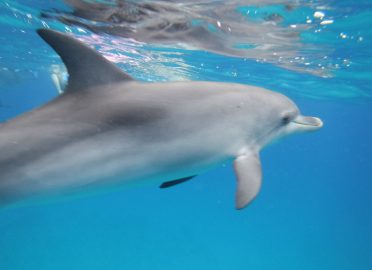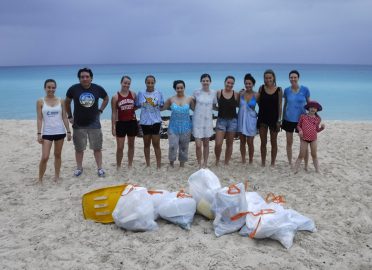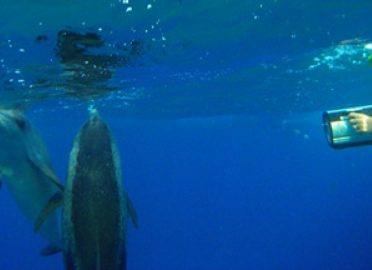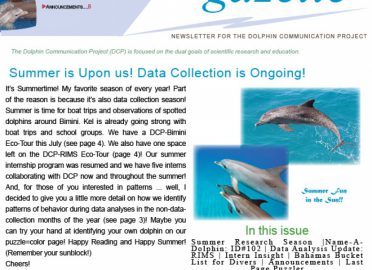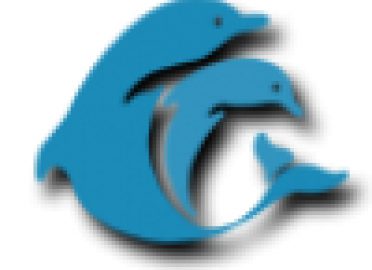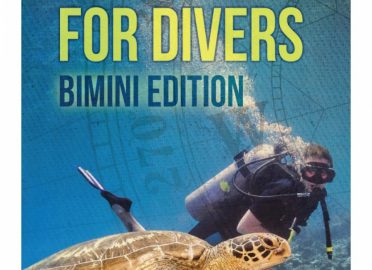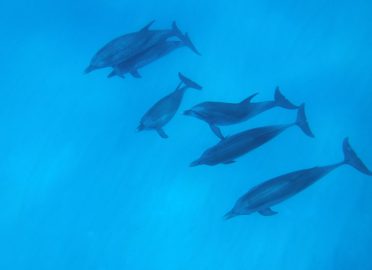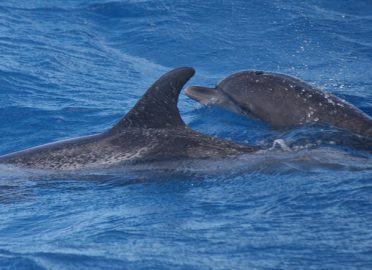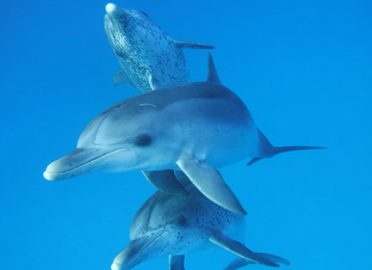Dolphins Among Rougher Seas
On Sunday, we were excited to see the sun and feel the warm rays. We headed to the Dolphin House and meet with a local Bimini man Ashley Saunders. We were impressed that he began working on the Dolphin house in 1993, and his family had been on Bimini for over 200 years. The house was all handmade and unique, made out of shells, pottery, seaglass. He used recycled materials and salvaged materials that he cleans up from the beaches.
Gang’s All Here!
On Saturday, we woke up to some pretty hefty rain and we weren’t optimistic that it could possibly clear up. But, we toughed it out and headed to the beach for our beach clean-up, even with darker skies threatening. The rain was light at the beginning and we were curious about the little moving things over the rocks – tiny (tiny!) snails and baby hermit crabs! We were expecting the beach to be quite clean – you imagine The Bahamas and you picture perfect, clean, white-sand beaches. Not the case. There were so many wrappers and disposable straws.
Long Travels and Cloudy Skies
Hi everyone! I’m thrilled to have Nicole back on Bimini and we’ve been busy the last few days prepping for our field course with Sacred Heart University. The group arrived on Friday 2 June and will be here until Thursday 8 June.
Come to Bimini!
Spaces available on a last minute July 2017 Bimini Ecotour/Research Experience.
Latest Newsletter!
The latest issue of The Dolphin Gazette - V21no2 - is ready for you!
Day of dolphins – without dolphins
Wednesday started pretty busy on Bimini! I packed my bag and headed to WildQuest to give a dolphin talk to their guests. A big thank you to the WildQuest family not only for the invitation, but also for the wonderful company, stories and questions. And, it was an honor to share mine with you!
After a quick check-in at home, it was off to the Juliet for the second talk of the day. This time, I chatted with visiting high school students from the Sarasota, FL area.
Thank you, Bahamas Bucket List for Divers, Bimini Edition!
True to his word, Captain Nate Riley has just donated proceeds from pre-orders of his awesome book, Bahamas Bucket List for Divers, Bimini Edition, to DCP!
Why helllllllo, dolphins!
On Saturday, Daisy and the visiting students headed out in search of dolphins, but unfortunately came up empty. That didn’t diminish anyone’s spirits as we headed out again on Sunday. About an hour into the trip we saw a group of 13 dolphins; I recognized quite a few, but suspect they were the “transplants” from the northern Bahamas. We had nice surface and underwater observations of this group before they took off abruptly.
Once we were back onboard the boat, we resumed our search and soon we were with 5 of the previous group of 13.
Would you like waves with that?
On Wednesday morning, I joined the SMCM students once again, this time for a lecture & practical on photo-identification. It’s just about my favorite topic to discuss! The students were engaged and knowledgeable and I hope they came away with good info and introductory photo-ID skills to utilize for the rest of the course.
Back on the bo-oat, again!
On Tuesday, I joined DCP Research Associate J. Daisy Kaplan and her field course from St. Mary’s College of Maryland. First, I gave the students a crash course in underwater still photography, showing them how to use & care for DCP’s still cameras and what to aim for when taking photographs intended for photo-ID. I could tell it is a great group of students!
Despite the heavy rain that came down during the camera orientation, the Bimini Adventures boat left on schedule, soon after 1500. We knew the conditions were windier than we’d like, but everyone was optimistic nonetheless.

